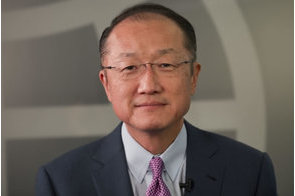Mathieu Flamini’s billion dollar biofuel company

Summary
Flamini invested millions of dollars in the company, as years of research went on and scientific breakthroughs were achieved.
Arsenal FC midfielder, Mathieu Flamini, announced this week that he, along with a close friend, has created the first company in the world that can produce Levulinic Acid (LA) on an industrial scale, a breakthrough that could reduce the burning of fossil fuels and help fight global warming.
The United States Department of Energy identified Levulinic Acid as one of the 12 molecules with the potential to replace petrol and reduce our dependence on fossil fuels. Apart from biofuels, the compound is also used in pharmaceuticals, cosmetics, plastics, food preservatives and in other processes. According Flamini, they derive LA from wood waste or corn waste, etc.
The idea for the company started when Flamini left Arsenal to join AC Milan in 2008. He had joined Arsenal from Marseille in 2004 and scored a total of eight goals for the Gunners. He spent a dreary five seasons in the Italian Serie A and subsequently made a return to his former London club in August 2013. It was during Flamini’s time in Italy that he met and collaborated with Pasquale Granata, a 32-year-old economics graduate, with whom he shared his environmental concerns.
The duo secretly created GF Biochemicals; the GF stands for Granata-Flamini -- although the ex-France international said he wanted to call the company Green Futures.
“When I moved to Milan in 2008 I met Pasquale, who became a close friend and we always had in mind to do something together. I was always close to nature and concerned about environmental issues, climate change and global warming. He was on the same wavelength. We were looking how we could make a contribution to the problem. After a while we found out about Levulinic Acid,” Flamini said in an interview with SunSport, UK.
GF Biochemicals has a plant in Caserta in Italy; and offices in Milan and Holland. The company says production of LA at the Caserta plant will be scaled up to 10,000 MT/a by 2017. It is planning to open an office in the United States soon.
Flamini said the company has researchers, chemists and other scientists from France, Italy, Russia, Holland, Germany and Egypt. It currently employs a total of 400 people; 80 of which work at the Caserta plant. It is working in partnership with the University of Pisa and the Polytechnic University of Milan.
Many green entrepreneurs have tried to find ways to mass produce LA but have failed to do so. Flamini noted that he and his partner are grateful to one of Italy’s top scientists, Professor Anna Maria Raspoli Galletti, who heads the company’s chemistry department.
Humbled by their achievement, Flamini said, “Pasquale and I still ask — why us? So many people have tried and failed before so why did we succeed? But it’s about believing. I read up on chemistry. I am not a chemist, I started my law studies at Marseille University until I had to give up because of my football career.”
Flamini invested millions of dollars in the company, as years of research went on and scientific breakthroughs were achieved. The company now has several patents on LA, in a market that is said to be worth over $30 billion. All the while, the Arsenal star kept his involvement under the radar.
“My Milan team-mates probably found out in our launch this week and my Arsenal teammates will probably find out reading this. I don’t think Arsene Wenger knows, I never spoke to him about it,” Flamini stated.
He said he wanted everything to be up and running before he would announce it – although he informed his parents about a year ago. And after seven years of hard work, he made the disclosure this week.
Martins Hile is Editor, Financial Nigeria magazine
Related
-
Germany’s KfW supporting renewable energy projects in Africa
DEG’s strategic goals is to finance environmentally-friendly projects in sub-Saharan Africa.
-
World Bank launches initiative to accelerate climate financing
Innovate4Climate Finance and Markets Week is a global platform to discuss the future of climate finance.
-
AfDB to triple Annual Climate Financing to nearly $5bn by 2020
The African Development Bank has committed almost $7 billion to support climate-resilient and low-carbon development in ...







